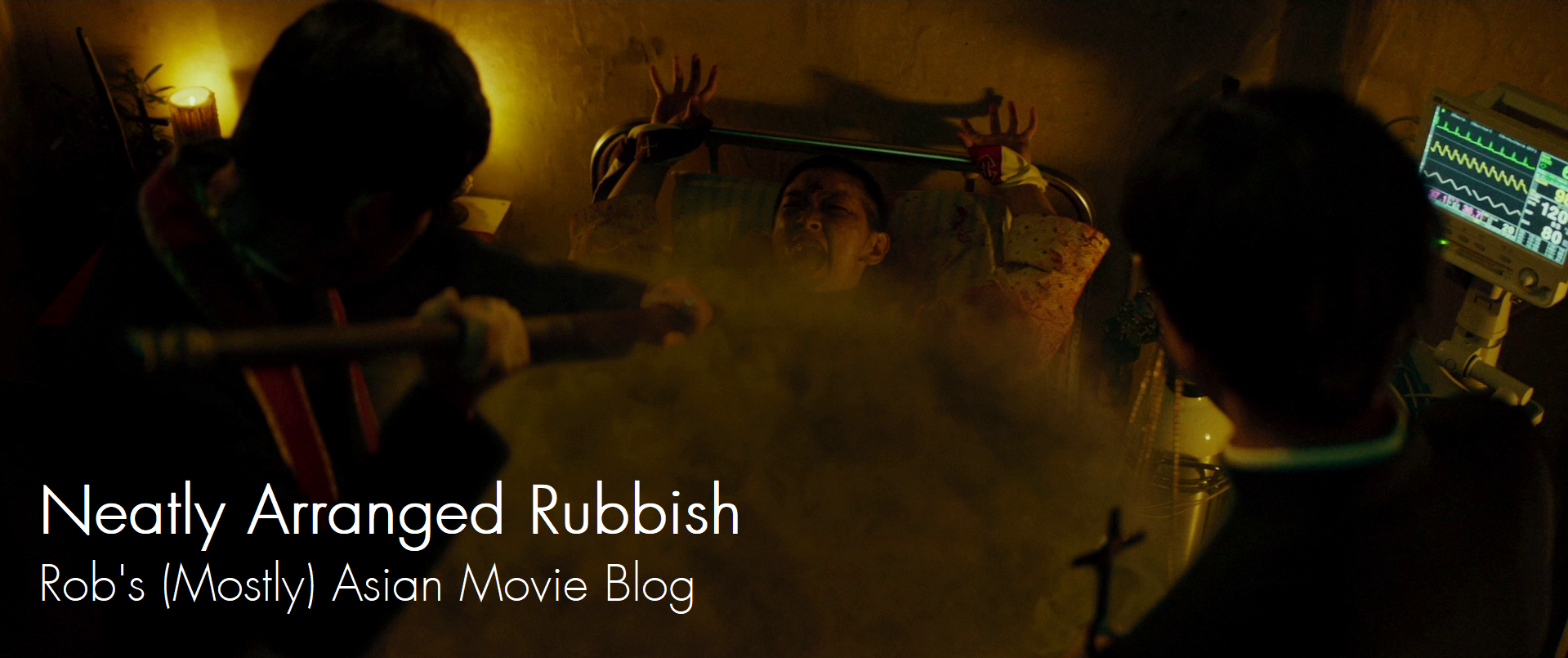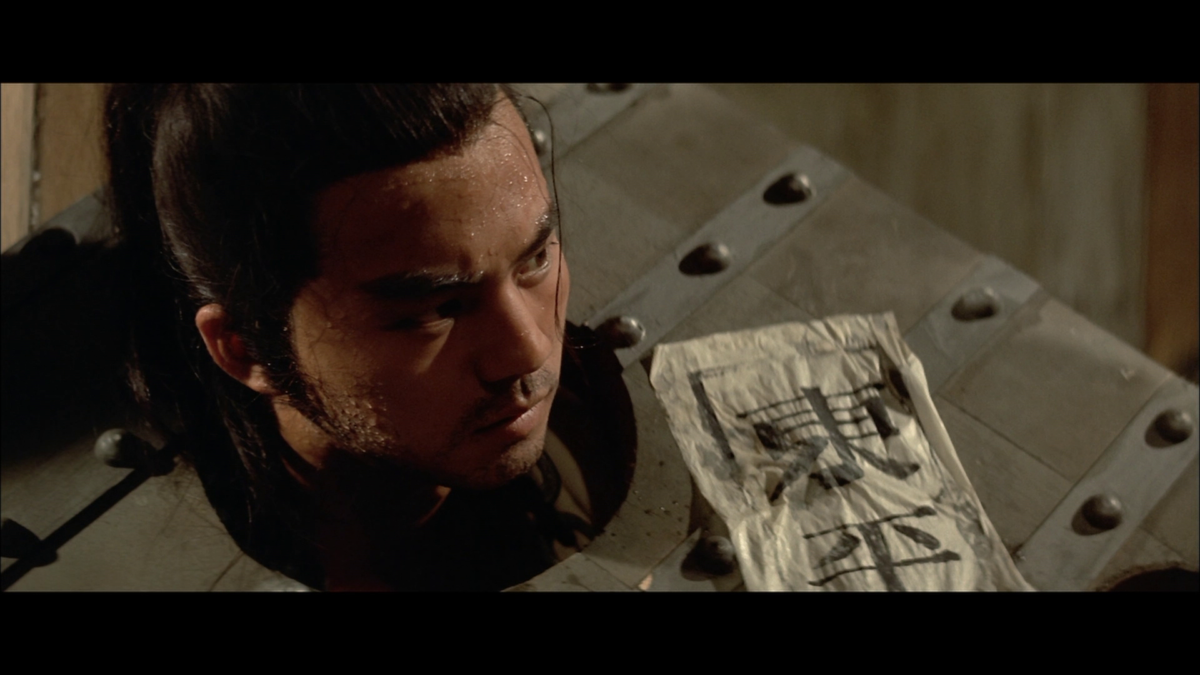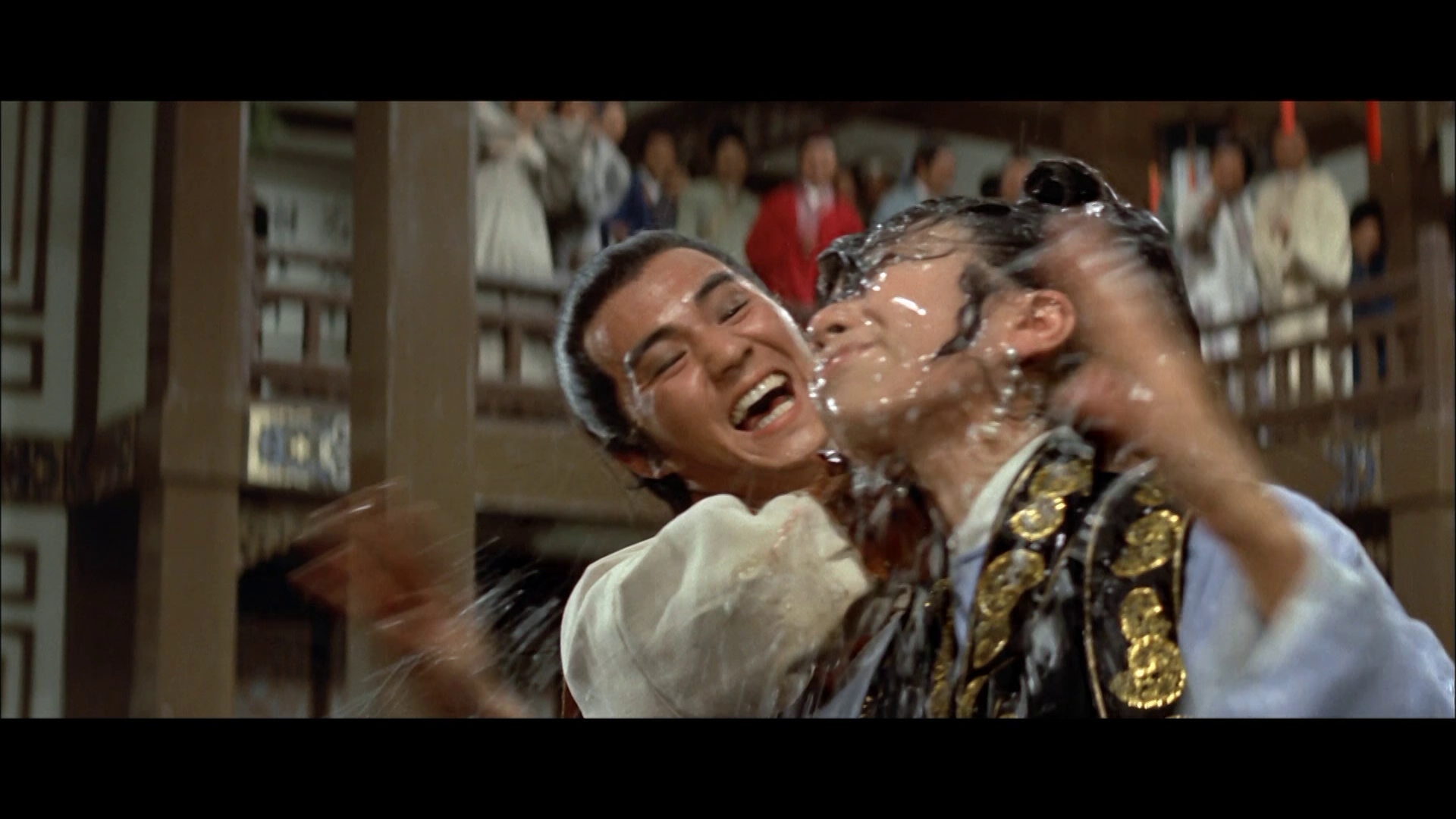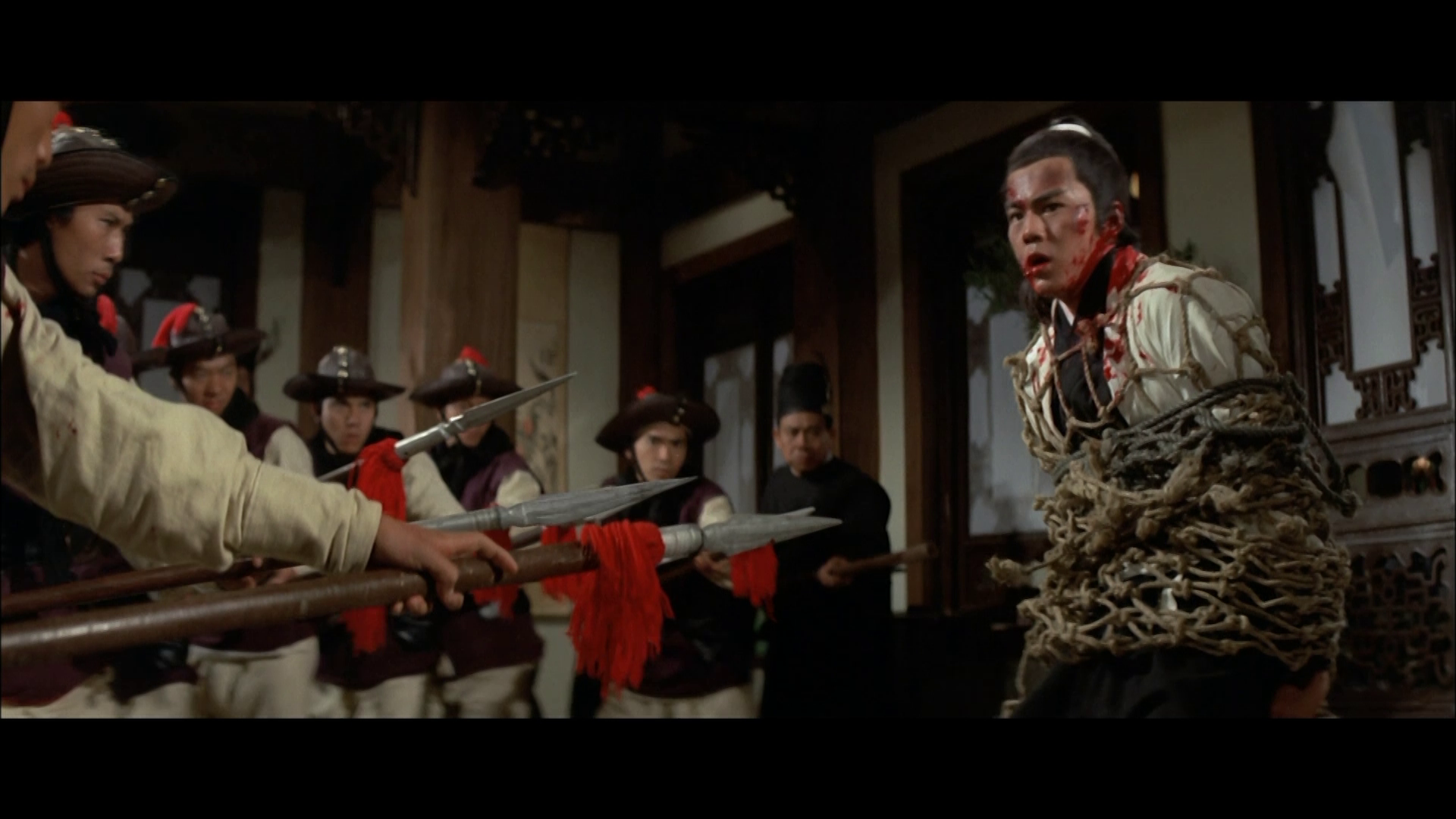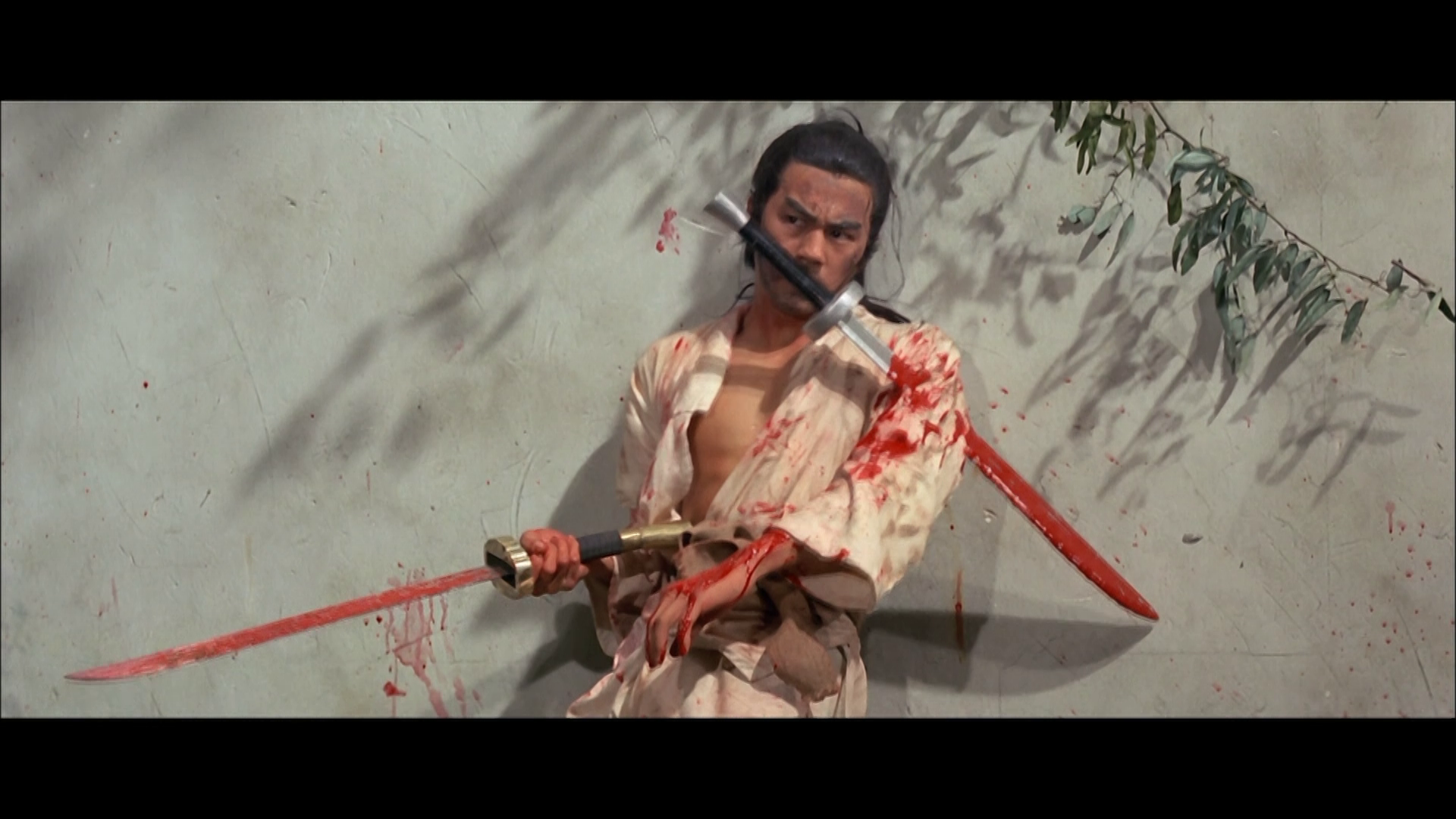Last Updated on November 7, 2020 by rob
In prison after slaying his cheating sister-in-law and her lover swordmaster Wu Sung (Ti Lung) finds himself begged by the prison boss’s son Shih-En (Tien Ching) to defeat a thug named Chung (Chu Mu), who’s seized control of a town known as The Delightful Forest. In combat Wu emerges victorious but Chung’s boss, corrupt local official Commander Zheng, has our righteous hero framed for robbery, imprisoned and marked for death.
A highly entertaining Shaw Bros entry with an intensely charismatic turn from Ti Lung as the master swordsman Wu Sung whose skills are quickly established when he dispatches his sister-in-law’s lover in the film’s fast and furious opening sequence and whose fame as the man who slew a tiger with his bare hands (an event we never actually see) gets mentioned by just about everyone he encounters. Wu’s unshakable sense of honour – this is a man who fully believes he deserves to be punished after having killed – means he’s actually disappointed when the whipping he’s threatened with by the prison commandant doesn’t materialise! With his insistence that he’ll only fight bad men such a straight arrow figure could have been a bore but Lung’s mischievous, playful performance – one with a hint of vulnerability – brings both character and story to life.
The way he seesaws from friendliness to threat, warmth to menace – as if there’s a volcano inside this guy about to erupt – reminded me a little bit of Patrick McGoohan in his prime. He’s simply great fun to watch and it’s a reminder of how enjoyable these things can be when everything is built around a really engaging lead. The music helps too. Cues from Morricone’s Once Upon A Time In The West really accentuate the contrasting traits of menace and amiability that comprise Wu Sung’s character. Although the opening and closing battles are brutal the bulk of the movie is agreeably good-natured. I enjoyed Wu Sung’s fight with a husband and wife team of thieves during a stopover at a remote inn in which Sung must defend himself whilst confined in a cangue (that’s a square piece of wood with holes cut in it that fit over head and hands) and the way it ends not in bodies and blood but in mutual friendship between combatants.
Likewise the relish with which Sung, en route to The Delightful Forest, wolfs down bowl after bowl after bowl of wine really does evoke the glee of a big kid having the time of his life. Granted, martial arts heroes who get more powerful the more pissed they get are hardly new – going back at least as far as King Hu’s Come Drink With Me (1966) – but the sight of Wu Sung drunkenly staggering into the village of the film’s title and causing a kerfuffle in Shih-En’s restaurant by complaining about the grub, “Are these buns made of human flesh or dog flesh?!” before half-drowning Chung’s wife in a vat of wine and decimating hubbie using a couple of kick ass moves known as Jade Chain Steps and Yin Yan Feet, is a lot of fun to watch. But an invitation by the villainous Commander Zheng to celebrate his triumph lulls Wu Sung into revealing his one weakness and with that our likeable hero is framed for theft and gets the shit beaten out of him by Zheng’s men armed with wooden staffs.
This is a cracking action setpiece as Wu can’t use his arms but still manages to deliver some devastating kicks. Or at least he does until the despicable Chung reappears and delivers the coup de grace, whacking the helpless Wu Sung over the head so viciously the staff actually busts in two! From this point on it’s blood and vengeance all the way (and persuasively motivated too since if there’s one thing guaranteed to enrage Wu Sung it’s having his own honour impugned) as Wu survives being almost murdered in prison (in a torture sequence that’s neatly foreshadowed earlier in the film) and then turns the tables on his escort during a thrilling bridge fight, using the cangue as a battering ram. I especially liked the moment an adversary’s blade gets stuck in the cangue and quick as a flash Wu turns that against his enemies, stabbing and slashing them with it even though he can’t use his hands.
The big showdown at a teahouse as Wu slaughters everyone and everything in sight is classic Chang Cheh (presumably he directed the action scenes here and Pao Hsuen everything else). Certainly the fights display Cheh’s distinctive stamp. He loves to cram the widescreen frame with moving bodies and there are the wild, virtually superhuman slashes of our hero’s sword that can slay half a dozen men in one go or swat back a rain of enemy arrows to impale their archers. And there’s a judicious use of slow motion to emphasise key moments such as when Wu Sung ducks a sword slash from Chung while simultaneously lashing out a kick at another enemy that sends him flying down the stairs. It’s awesome stuff and the film reaches a tremendously blood-soaked climax as Chung discovers for himself just how lethal Wu’s Jade Chain Steps and Yin Yan Feet moves can be.
But for me, the most stirring moment comes afterward as Wu Sung’s unshakable sense of honour shows itself as he scrawls in his own blood on a nearby wall, the words ‘Wu Sung killed these men’. Say what you want about Shaw’s use of ripped off Western movie music cues but as scored to Frank’s Theme from Once Upon A Time In The West this is just a marvellously sublime and elegiac moment. A brief coda sees a wounded Wu Sung stumbling into the inn he earlier visited and nursed back to health by its owners before adopting the garb of a former monk and setting off anew. This smashing film is an adaptation of a handful of chapters from the sprawling Water Margin novel and the character of Wu Sung, again played by Ti Lung, turns up in at least two more movies. Wearing the same monk garb he exits this film in he’s part of a big ensemble cast in Shaw’s epic 1972 film version of the novel and if I remember correctly he loses a limb in the big finale.
Tiger Killer (1982) is practically a prequel to The Delightful Forest as it’s the one featuring Wu Sung’s famous battle with a man eating tiger and depicts how Sung’s brother marries and is then murdered by his unfaithful wife and her lover. Ti Lung is once again fine in the role but he’s unfortunately let down by everything else here which ranges from Li Han-Hsiang’s limp direction, some terribly overripe (even by Shaw standards!) performances from the supporting cast and an all too obvious stuffed tiger that poor Ti’s forced to pummel with a series of martial arts punches. The film’s climactic teahouse fight is the same setpiece The Delightful Forest opens with and comparing the two sequences you can see straight away how the latter film is just head and shoulders above the former.
